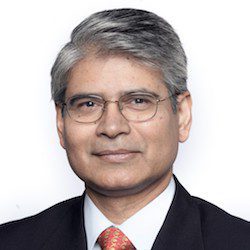
As the UN Open-Ended Working Group (OEWG) on the security of and in the use of ICTs concluded its five-year mandate, the conversation now turns to the future. This expert discussion will focus on the potential contours of a future global mechanism for international cyber dialogue and cooperation. Building on Part 1 of this series — which reflected on the achievements and shortcomings of the OEWG process — this session will explore what comes next: What kind of structure or platform is needed to sustain momentum, foster trust, and enhance cyber stability? Experts will share their lessons learned from the OEWG to inform forward-looking discussions on institutional options, inclusivity, and practical implementation of the agreed norms.
The one-hour session will bring together four discussants to offer diverse perspectives on how the OEWG experience can inform future global cyber negotiations. Through the interactive format which will allow the involvement of all the participants, the discussion will provide a space to examine pathways and obstacles for implementation of the agreed framework, space for articulation of consensus on some of the many open issues – in particular those related to the applicability of the international law, possibilities to strengthen inclusivity and effectiveness in the UN cyber dialogue moving forward.
The session is organised as the second part of the two-part webinar. While the first part focused on reflections about the past five years of negotiations, the second one will shift toward the future, exploring the framing and ideas for the next phase of the UN cyber dialogue.
The discussants are:
- Asoke Mukerji, Former Indian Ambassador to the United Nations, New York
- Isaac Morales Tenorio, Managing Director on Cybersecurity and Security Issues, FTI Consulting; a former member of the UN Group of Governmental Experts (GGE) representing Mexico
- Fan Yang, Assistant Professor, Deputy Director of Cyberspace International Law Center, Deputy Director of International Law Department, School of Law, Xiamen University
The expert session will be moderated by Anastasiya Kazakova, Geneva Dialogue project coordinator and Cyber Diplomacy Knowledge Fellow at DiploFoundation.
The discussion will be held online and will be open to the public. A recording of the event will also be made available afterwards on Diplo’s social media channels.


